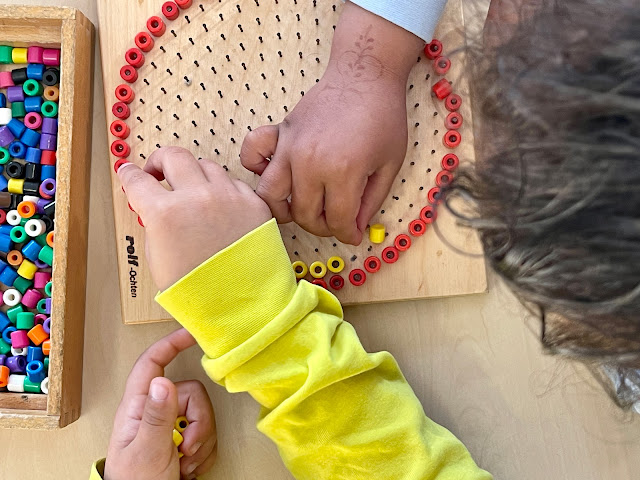Repositioning Our Stance on Education: Embracing Values Beyond Neo-liberalism
Education is the cornerstone of change within societies, shaping the future of individuals and communities alike. However, the prevailing neo-liberal approach to education, with its emphasis on market-driven policies, individual competition, and narrow outcome-based assessments, has often overshadowed the core values that truly foster holistic growth and well-being of all members of the learning community. Many teachers are now experiencing daily pressures to ‘teach to the test’ and to measure learning against standards solely focused on literacy and numeracy skills.
Loris Malaguzzi expressed concerns about what he referred to as “prophetic pedagogy” which entails an educational approach that: ‘…contemplates everything and prophesies everything, sees everything to the point that it is capable of giving you recipes for little bits of actions, minute by minute, hour by hour , objective by objective, five minutes by minutes. This is something so coarse, so cowardly, so humiliating of teachers’ ingenuity, a complete humiliation for children’s ingenuity and potential.’ (Cagiari et al, 2016: p.xvi)
To create a more balanced and inclusive educational landscape, we need to shift the focus towards a new set of values that promote collaboration, empathy, and lifelong learning:
Beyond the sole focus on standardized testing and quantifiable metrics, the notion of holistic growth must be embraced. Education should focus on nurturing not only cognitive abilities but also emotional intelligence, creative and critical thinking. By recognizing and nurturing diverse talents and skills, learners become well-rounded individuals capable of addressing complex challenges. The significance of skills and dispositions such as empathy, communication, and teamwork has been recognized by many. These skills are vital for well-being, navigating interpersonal relationships and fostering empathy towards diverse perspectives.
A learner's curiosity is the foundation of meaningful education. Encouraging curiosity-driven exploration and inquiry-based learning enables students to become active meaning makers , encouraging a love for learning that extends far beyond the pursuit of grades. We know that learning is a complex and socially constructed process. Rather than implementing a procedural and impersonal delivery system, teachers today must keep themselves abreast of rigorous research on how the brain learns as well as stay informed about who their learners are.
Recent studies in neuroscience propose that academic success is determined not solely by intelligence but also by one’s curiosity. This intriguing idea hints at the interdependence between development and environment, as curiosity activates brain activity and allows for deep engagement - seeking answers, building theories, making connections and retaining information.
Recognizing educators as key agents of change, they must be provided with the autonomy and support they need to tailor their teaching and learning strategies to suit the unique needs of their students. Valuing and respecting teachers elevates the overall quality of education.
Education should be a great equalizer, bridging the gaps between communities. Emphasizing equitable access to quality education, communities must strive to dismantle barriers that hinder certain groups from attaining their full potential. Inclusivity should be woven into the fabric of educational institutions, fostering an environment where all learners feel valued and empowered.
The journey of education doesn't end with formal schooling. Embracing a lifelong learning approach acknowledges that knowledge and skills evolve with time. Encouraging a passion for learning beyond the school enables individuals to adapt, innovate, and contribute to society throughout their lives.
Education must transcend the boundaries of the classroom to engage with the broader community. Collaborating with local stakeholders, schools can set up initiatives and learning engagements that invite students to consider community needs and citizenship, fostering a sense of purpose and social responsibility among learners.
Integrating sustainable practices and environmental awareness into education aligns with the broader goal of nurturing responsible global citizens. Encouraging ecological literacy helps learners understand their impact on the planet and inspires them to take actions that protect the environment.
Repositioning our stance on education to embrace these values is a tangible process that involves several aspects that may be far beyond the influence of individuals teams or schools. This agenda for reform is worth our time and efforts, and offers many possibilities to think about our practice through the following lenses:
Curriculum Design: A redesigned curriculum that integrates conceptual learning, diversity, and community-focused projects.
Teacher Training: Equipping educators with pedagogical skills and emotional intelligence training to create inclusive and inspiring learning environments.
Assessment Practices: Moving away from rigid standardized testing towards more nuanced and inclusive assessment methods that capture diverse forms of intelligence.
Policy Reforms: Advocating for policies that prioritize equity in resource allocation, teacher pay, and access to education for all communities.
Technology Integration: Leveraging technology thoughtfully to enhance learning experiences and facilitate collaboration.
Community Partnerships: Forging partnerships with local organizations and businesses to bring real-world experiences into the educational journey.
By aligning values with the transformation of educational practices, the way can be paved for a more compassionate, interconnected, and resilient society. It is through this repositioning that the true purpose of education can be reimagined: not merely to serve the economy, but to empower individuals to lead meaningful lives while contributing positively to the collective well-being of all.
We would love to hear your thoughts in response to our thinking. It has been a while since we have published a post and are keen to get back to continuing the conversation with you!
Fiona and Anne




Comments
Post a Comment